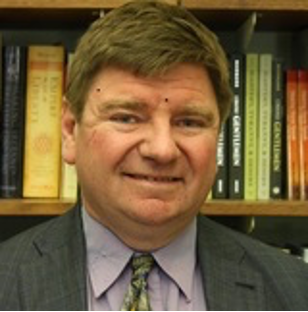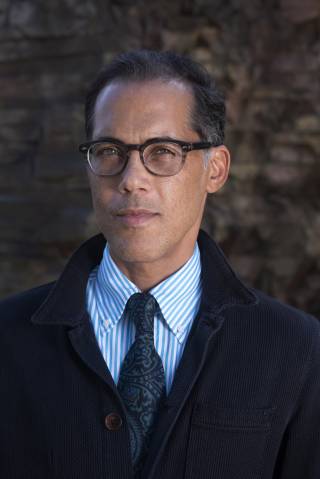Panel Discussion: The History of Slavery
Notes & Changes
Register here. Please note that this event may be recorded, with the exception of any live audience questions.
This panel discussion forms part of a three-part public seminar series on the past and present of slavery, organised by the Bonavero Institute of Human Rights and moderated by Samantha Knights QC. The discussions are aimed at a broad interdisciplinary audience and will cover what can and should be done to address slavery, with a focus on the history of slavery, the legacy of empire, education about slavery, human trafficking and modern slavery.
The first panel in the series is on 'The History of Slavery' and will address the history of transatlantic slave trade, abolition and Britain’s own history of slavery.
An audio recording of this event is available to listen to on Soundcloud
Panellists

Trevor Burnard is the Wilberforce Professor of Slavery and Emancipation at the University of Hull and the Director of the Wilberforce Institute. Between 2011 and 2019 he was Professor of American History and Head of School (2011-18) in the School of Historical and Philosophical Studies at the University of Melbourne, where he has been a faculty member since February 2011. In addition to many articles, book chapters and edited books on the Caribbean and the Chesapeake, Trevor has written the following monographs. One was Creole Gentlemen: The Maryland Elite 1690-1776 (New York and London: Routledge, 2002) and a prize-winning study of a Jamaican slave overseer, Mastery, Tyranny, and Desire: Thomas Thistlewood and His Slaves in the Anglo-Jamaican World (Chapel Hill: University of North Carolina Press, 2004). He has published a study of plantation societies in late seventeenth and eighteenth-century British North America and the West Indies in the American Beginnings Series called Planters, Merchants, and Slaves: Plantation Societies in British America, 1650-1820 (Chicago: University of Chicago Press, 2015). In June 2016, he published a co-authored comparative study of colonialism and slavery (with John Garrigus of University of Texas at Arlington) called The Plantation Machine: Atlantic Capitalism in French Saint-Domingue and British Jamaica (Philadelphia: University of Pennsylvania Press, 2016). In 2020 he published two syntheses – The Atlantic in World History, 1492- 1830 (London: Bloomsbury) and Britain in the Wider World (London: Routledge) – and a monograph on mid to late eighteenth-century Jamaica, Jamaica in the Age of Revolution (Philadelphia: Pennsylvania). He has been the editor-in-chief of the Oxford Bibliography Online in Atlantic History since 2009.

Faridah Zaman is Associate Professor of the History of Britain and the World at the University of Oxford, and Tutor of Modern History at Somerville College. Dr Zaman is a historian of the modern British Empire, South Asia and global intellectual history. After completing her PhD at the University of Cambridge, she held a postdoctoral fellowship at the University of Chicago from 2015-2018. Currently, she has two main areas of research. The first is a study of Muslim political activists, religious scholars, journalists and poets in early twentieth century British India. She situates developments in the thought of these figures within a history of worldwide war, political revolution and imperial decline. The second research area concerns history as an academic discipline in Britain from the late eighteenth century, and its relationship to the expansion and legitimisation of empire. To date, she has also written on memory and nostalgia, heritage and imperial visual culture and political visions of the future in the nineteenth and twentieth centuries.

Matthew J. Smith is Professor of History and Director of the Centre for the Study of the Legacies of British Slave-Ownership. He joins UCL after many years working at the University of the West Indies, Mona in Jamaica where he was Professor of Caribbean History. His research is pan-Caribbean in scope with special interest in the nineteenth- and twentieth-century histories of Haiti and Jamaica. Among his publications is Liberty, Fraternity, Exile: Haiti and Jamaica After Emancipation (Chapel Hill: University of North Carolina Press, 2014), a comparative study which explored the post-slavery intersections between the two Caribbean neighbours with a focus on overlapping narratives and shared migration histories. His earlier book, Red and Black in Haiti: Radicalism, Conflict and Political Change, 1934-1957 (Chapel Hill: University of North Carolina Press, 2009) studied the activities of radical political groups that emerged after the US Occupation of Haiti (1915-1934) and prior to the establishment of the dictatorship of François Duvalier in 1957. Among his current research projects is a study of the representations and legacies of the Morant Bay Rebellion in Jamaica in 1865, and a social history of Jamaican popular music since the 1950s. Matt is the Chair of the Advisory Group for a AHRC-funded project using historical approaches to research food systems to meet contemporary challenges.
Moderator

Samantha Knights QC is a practising barrister at Matrix specialising in public law and civil liberties with a focus on modern slavery, trafficking and refugee law. She has been involved in a number of recent challenges to policy, law and practice relating to the immigration status, support and accommodation for victims of slavery and trafficking as well as numerous other strategic human rights cases before the courts in the UK and Strasbourg. She is the chair of the Advisory Board of the European Human Rights Advocacy Centre (EHRAC), and is an Adjunct Professor at the University of Miami where she teaches international human rights law. Her new book Law, Rights, and Religion will be published by OUP in February 2021.

